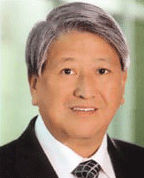

Having started with only three sets of second-hand sewing machines, and today, PCCS Group besides its core business of garment manufacturing, comprises of 13 subsidiary companies. It’s a greatly inspiring story indeed. Can you share with us what had been the driving spirit towards this huge success?
It is basically the survival spirit and the strong will to succeed in life. Initially, the main ingredients for the success may be attributed to a combination of a few factors, namely; sharp eyes for opportunities, hard work, timing, strong faith and the never say die spirit. Success breeds success and with the inherent entrepreneurial spirit and coupled with the strong parental and family members support has lead to this success.
What is your stance on the global garment industry’s performance in current times? How do you see your country placed in this sector?
There appears to be an overstock situation and compounded with the present difficult global economic situation, sales is expected to decline by low two digits figure BUT it will pick up gradually. The period and speed of recovery will depend on the speed of recovery of the USA and EU markets on the stimulus package provided by their respective governments.
As an established player of Malaysia, knowing the Malaysian garment industry from close, what all do you regard as the hurdles for this industry?
The main hurdle for the garments industry in Malaysia is the lack of workers. This is compounded by the lack of Governmental support as garments industry is not considered as a “preferred” industry in Malaysia.
EU-ASEAN Free Trade Agreement (FTA) talks are going on. What all benefits do you see Malaysia availing from this FTA?
Whatever benefits it may have; they go negated by the difficulties in sourcing for reasonably priced local skilled workers for this industry. This industry is labor intensive and recent government policy does not permit the recruitment of foreign workers for this industry.
Please apprise us with the latest trends in customer/consumers preferences in ready to wear clothes?
It will be skewed towards sports life style – sporty yet casual.
How is your elastic webbing/embroidery business doing?
These have been scaled down in tandem with the garments manufacturing operations in Malaysia.
Any plans on backward integration in textile arena?
There are no immediate or future plans for backward integration in the textile arena.
#######
DISCLAIMER: All views and opinions expressed in this column are solely of the interviewee, and they do not reflect in any way the opinion of Fibre2Fashion.com.